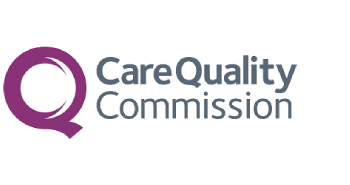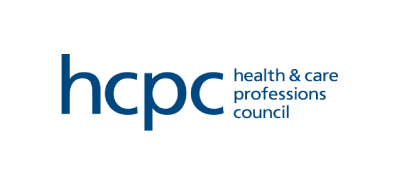Living with ADHD (Attention Deficit Hyperactivity Disorder) can feel overwhelming, particularly when symptoms like difficulty focusing, impulsivity, or hyperactivity disrupt daily life.
For many adults and parents of children with undiagnosed ADHD, these struggles often feel inexplicable and unmanageable. But there’s good news! An ADHD diagnosis can be life-changing. It’s the first step toward understanding the challenges you or your child face and accessing the tools and support needed to succeed.
In this article, we’ll explore how an ADHD diagnosis can help, what the process involves, and how KPI:Access can assist you on this journey.
Understanding Social Development
Children develop social skills at different rates, and some may naturally take longer than others to form friendships. Making friends involves a range of abilities, including communication, empathy, and an understanding of social cues. For some children, these skills may come easily, while others may find them more challenging.
Why an ADHD Diagnosis Matters
An ADHD diagnosis provides clarity. It identifies the root cause of behaviours that might previously have been misunderstood or mislabelled. This understanding is empowering for several reasons:
Validation of Experiences: Many individuals with undiagnosed ADHD feel misunderstood, lazy, or “not good enough.” A diagnosis confirms that these struggles have a medical basis and are not due to personal failings.
Access to Support: With a diagnosis, individuals gain access to specialised resources, interventions, and accommodations that can significantly improve quality of life.
Tailored Strategies: ADHD affects everyone differently. A diagnosis helps healthcare professionals create personalised strategies for managing symptoms.
The Benefits of an ADHD Diagnosis
1. Understanding the Symptoms
ADHD symptoms can vary widely, including inattention, impulsivity, hyperactivity, or a combination of these. A diagnosis helps to pinpoint which symptoms are most prominent, making it easier to address them effectively. For adults, understanding why they struggle with procrastination, forgetfulness, or time management can be life-changing. For children, a diagnosis helps parents and teachers better understand behaviours and offer appropriate support.
2. Access to Treatment
An ADHD diagnosis opens doors to treatments that can make a tangible difference. Treatment might include:
- Medication: Medications like stimulants or non-stimulants can improve focus and reduce impulsivity.
- Therapy: Cognitive Behavioural Therapy (CBT) or coaching can help individuals build effective coping mechanisms.
- Lifestyle Changes: Diet, exercise, and sleep routines can complement other treatments.
3. Educational and Workplace Support
With a diagnosis, schools and workplaces are required to provide reasonable accommodations under disability legislation. This might include:
- Extended deadlines or quiet workspaces.
- Individualised education plans (IEPs) or 504 plans for students.
- Coaching and organisational tools for adults in the workplace.
4. Improved Relationships
ADHD symptoms can strain relationships with family, friends, or colleagues. A diagnosis can provide clarity, allowing others to understand behaviours rather than misinterpreting them as laziness or disinterest. Family therapy or coaching can also strengthen communication and reduce conflict.
5. Boosting Self-Esteem
Years of untreated ADHD can take a toll on self-esteem. A diagnosis helps individuals reframe their struggles as challenges they can address with the right support. This shift in perspective can lead to greater confidence and a more positive self-image.
What Happens During an ADHD Assessment?
At KPI:Access, the ADHD assessment process is thorough and compassionate, designed to make you feel understood and supported. Here’s what to expect:
- Initial Consultation: A neurodevelopmental specialist will gather detailed information about symptoms, history, and challenges. This may include questionnaires and discussions with family members or teachers.
- Observation and Testing: The specialist will evaluate behaviours, using standardised tools to assess ADHD symptoms.
- Diagnosis and Next Steps: If ADHD is diagnosed, a detailed report will be provided, along with recommendations for treatment and support.
At KPI:Access, you don’t need a GP referral to begin this process, and we operate a no-exclusion policy, ensuring every child or adult booked for an assessment receives thorough attention.
FAQs About ADHD Diagnosis
Why Choose KPI:Access?
KPI:Access specialises in ADHD and Autism Spectrum Disorder (ASD) assessments, offering accessible, affordable, and expert care for children and adults. Our team provide compassionate, personalised care, focusing on understanding behaviours and delivering effective support.
KPI:Access ADHD Assessments
- Rapid Access: Quick booking and assessment times mean you won’t have to wait months for answers.
- Self-Referral: Skip the GP and book directly with us.
- No-Exclusion Policy: Every individual booked receives an assessment, regardless of their background or challenges.
- Experienced Team: Our specialists bring decades of expertise in neurodevelopmental care.
We’re here to provide clarity, support, and a path forward, ensuring you or your child receives the care needed to overcome obstacles and unlock potential.
Take the First Step with KPI:Access
An ADHD diagnosis can provide valuable tools and understanding to tackle challenges more effectively.
At KPI:Access, we’re dedicated to helping individuals and families access affordable, expert ADHD assessments. Don’t let uncertainty stop you—contact KPI:Access today to schedule an assessment and take the first step toward clarity and support.
By identifying challenges and providing practical solutions, an ADHD diagnosis helps individuals take control of their lives. With the right support, you can turn obstacles into opportunities, and KPI:Access is here to support you every step of the way.





